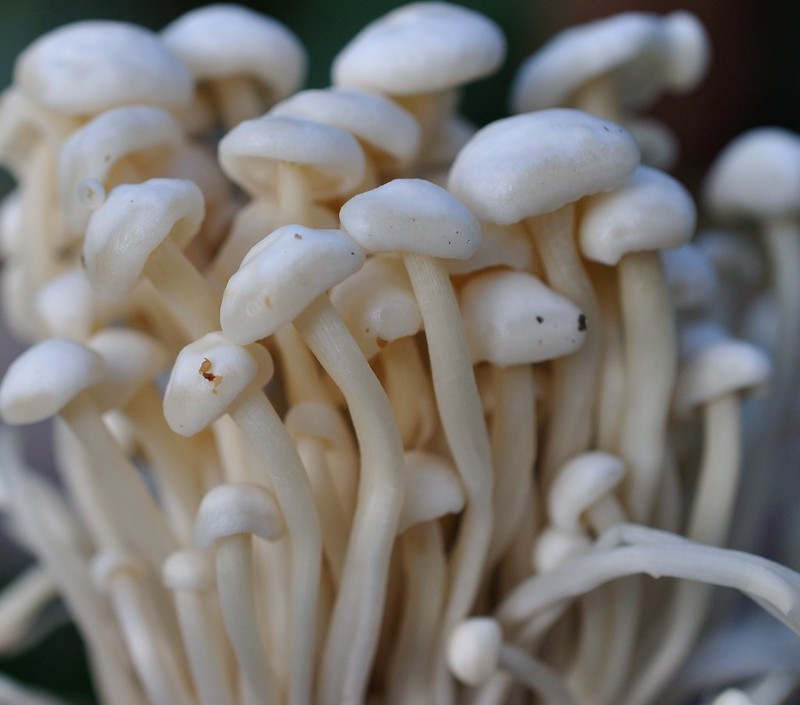The Centers for Disease Control and Prevention (CDC) said last week that its investigation into a Listeria outbreak linked to enoki mushrooms has ended.
The agency said in a food safety alert that the outbreak caused five illnesses in four states (California, Nevada, Michigan, and New Jersey), with five hospitalizations. Samples were collected from October 5, 2022, to February 4, 2023. Case patients ranged in age from less than 1 to 63 years.
Two of the case patients reported eating enoki mushrooms or eating at restaurants with menu items containing them. Of the three who did not report eating enoki mushrooms, two said they had shopped at grocery stores or eaten at restaurants that sell Asian foods.
The long, thin-stemmed mushrooms are popular in Japanese, Chinese, and Korean food and commonly used in soups and stir-fried dishes. They have now been linked to two multistate Listeria outbreaks and more than 20 recalls of enoki mushrooms because of potential Listeria contamination have been issued since 2020.

Whole-genome sequencing showed that bacteria from case patients were closely related genetically, suggesting people got sick from the same food. Investigation by the Food and Drug Administration (FDA) identified the outbreak strain in a sample of Utopia Foods-brand enoki mushrooms imported from China, which have subsequently been recalled.
Officials in Missouri and Maryland also found outbreak strains from samples produced by China's Shandon Youhe Biotechnology Co. The CDC and FDA are advising people not to eat enoki mushrooms produced by the company.
Listeriosis can cause a variety of symptoms, such as fever and diarrhea, and can be especially serious and even deadly in pregnant women, seniors, and those with weakened immune systems. The CDC says people who are pregnant, aged 65 or older, or have weakened immune systems should not eat raw enoki mushrooms and that restaurants should cook the mushrooms thoroughly before serving them.











